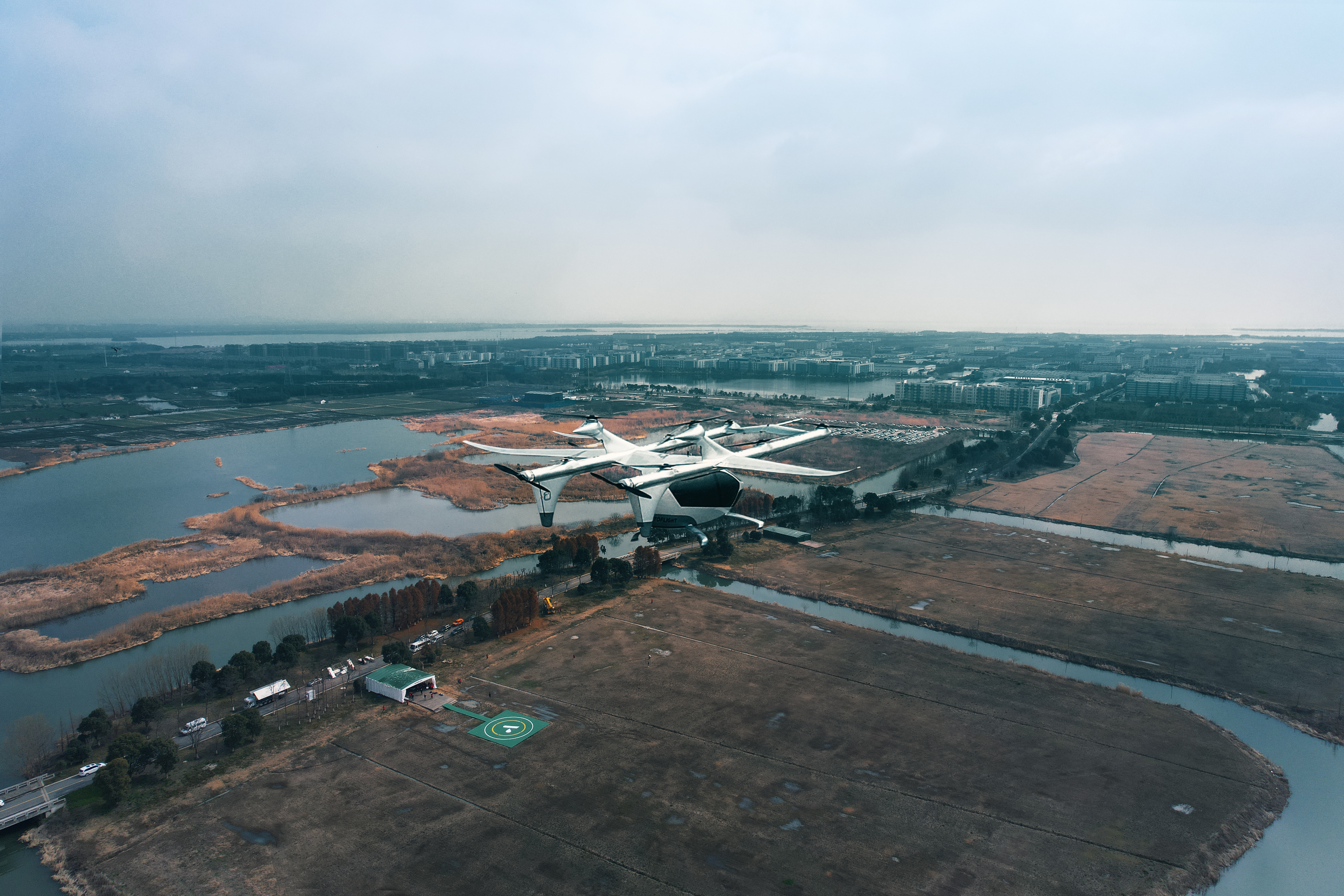
Autoflight's Prosperity I air taxi rose to an altitude of 150 metres at speeds of up to 123 mph in its 'transition' flight in China's JiangSu province.
Autoflight says Prosperity I is designed for short transfers between parts of a city, airport commutes, connecting two enarby cities or enabling trips to the countryside while avoiding traffic on the ground.
The company explains that a transition is when an aircraft moves from a vertical to horizontal motion and is one of the most challenging parts of an electric vertical take-off and landing (eVTOL) flight.
According to Autoflight, the vertical flight for the Prosperity I required eight rotors to lift the 3,307 pounds.
The fixed wing part of the eVTOL generated lift once the aircraft reached an altitude of 150 meters and the airspeed of 100-110mph, the company adds.
At this point, AutoFlight states that Prosperity I entered the complex transition phase – the rotors on the top stopped spinning and locked in a streamlined position, while the propellers on the rear pushed the aircraft forward like a traditional fixed wing plane.
AutoFlight CEO Tian Yu says: “The team and I are thrilled to have cracked the smooth transition phase of eVTOL flight, unlocking the skies for Prosperity I and our commercial products. We are confident we have a good design underpinned by sound engineering, and delighted to see that the transition was smooth, safe and seamless.”
Mark Henning, managing director at AutoFlight Europe says: “The simplicity of AutoFlight’s design lies in our patented ‘Lift and Cruise’ configuration, which combines superior range and safety with low technical complexity, making it affordable to manufacture, maintain and operate as an air taxi.”











